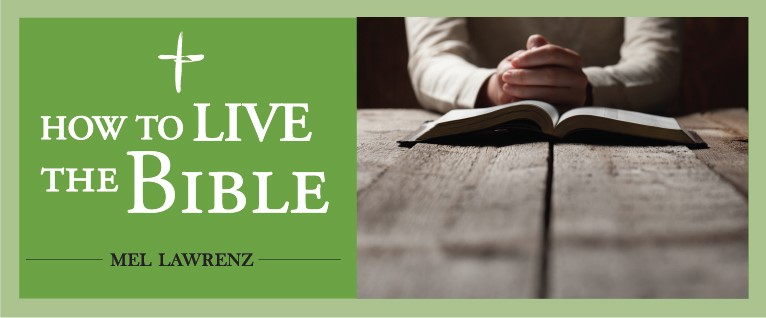
This is the sixty-fifth lesson in author and pastor Mel Lawrenz’ How to Live the Bible series. If you know someone or a group who would like to follow along on this journey through Scripture, they can get more info and sign up to receive these essays via email here.
See Mel Lawrenz’s most recent book is How to Study the Bible: A Practical Guide, from which today’s lesson is adapted.
Some of the great Christian leaders of the past based their lives and work on their intimate and deep knowledge of the truth of God in Scripture. Some spoke out forcibly, compelling all believers to take Bible reading and study seriously. Their commitment rose from their deep-seated conviction. Here are a few examples.

Richard Baxter:
Study hard, for the well is deep, and our brains are shallow. But especially be laborious in practice and in the exercise of your knowledge.
Martin Luther:
Watch, study, give attendance to reading! Verily, you cannot read too well; and what you read well you cannot understand too well; and what you understand well you cannot teach too well; and what you teach well you cannot live too well!… It is the devil, it is the world, it is our flesh, that rage and rave against us. Therefore, dear sirs and brethren, pastors and preachers, pray, read, study, be diligent! Verily, there is no time for sloth, snoring, and sleeping in this evil, shameful time. Use the gift that has been committed to you and make known the mystery of Christ.
John Wesley, who here makes six key practical points:
If you desire to read the Scriptures in such a manner as may most effectually answer this end, would it not be advisable,
- To set apart a little time, if you can, every morning and evening for that purpose?
- At each time, if you have leisure, to read a chapter out of the Old and one out of the New Testament; if you cannot do this, to take a single chapter, or a part of one?
- To read this with a single eye, to know the whole will of God, and a fixed resolution to do it?
In order to know His will, you should,
- Have a constant eye to the analogy of faith, the connexion and harmony there is between those grand, fundamental doctrines, original sin, justification by faith, the new birth, inward and outward holiness;
- Serious and earnest prayer should be constantly used before we consult the oracles of God; seeing ‘Scripture can only be understood through the same Spirit whereby it was given.’ Our reading should likewise be closed with prayer, that what we read may be written on our hearts;
- It might also be of use, if, while we read, we were frequently to pause, and examine ourselves by what we read, both with regard to our hearts and lives….
And whatever light you then receive should be used to the uttermost, and that immediately. Let there be no delay. Whatever you resolve begin to execute the first moment you can. So shall you find this word to be indeed the power of God unto present and eternal salvation.
These historic leaders were not talking about Bible study as a mechanical obligation, but as a life-giving pattern of our lives. History was shaped from this kind of conviction and commitment.
___________
[If you believe this series will be helpful, this is the perfect time to forward this to a friend, a group, or a congregation, and tell them they too may sign up for the weekly emails here]
Mel Lawrenz (@MelLawrenz) trains an international network of Christian leaders, ministry pioneers, and thought-leaders. He served as senior pastor of Elmbrook Church in Brookfield, Wisconsin, for ten years and now serves as Elmbrook’s minister at large. He has a PhD in the history of Christian thought and is on the adjunct faculty of Trinity International University. Mel is the author of 18 books, including How to Understand the Bible—A Simple Guide and Spiritual Influence: the Hidden Power Behind Leadership (Zondervan, 2012). See more of Mel’s writing at WordWay.
The post How to Live the Bible — Being Committed to the Word appeared first on Bible Gateway Blog.










